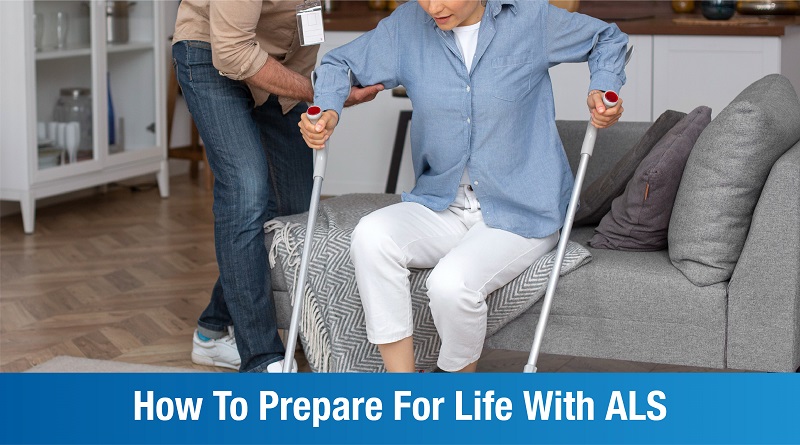
Receiving a diagnosis of ALS can be a challenging moment for you and your family. A rare neurodegenerative disease, ALS has no cure and patients will eventually lose functionality and rely on round-the-clock medical care. It may be difficult to think about preparing for a life with ALS, especially when you are in denial mode about the diagnosis. However, preparing in advance helps you and your family to take prompt action when contingencies arise. Here, we provide a brief guide on the same.
Understanding ALS
Amyotrophic Lateral Sclerosis (ALS) is one among a group of conditions known as motor neuron disease. Motor neuron diseases are a group of neurodegenerative disorders that selectively affect motor neurons, that is, the cells which control all the voluntary muscles of the body. The voluntary muscles are responsible for performing movements under one’s will and thus motor neuron diseases affect one’s ability to perform voluntary movements. The cause behind ALS is unknown in most cases. It could be a combination of genetic and environmental factors.
Symptoms of ALS
The initial symptoms of Amyotrophic Lateral Sclerosis may look very different from one patient to another, depending on where the neurodegeneration first began. In general, some of the symptoms to keep an eye out for include:
- Weakness in the limbs
- Unsteady gait
- Twitching sensations in the arms and shoulders
- Muscle cramping
- Slurred speech
- Trouble with eating and swallowing
- Unexpected and rapid weight loss
Preparing for a future with ALS
It can be hard to think about a future where your abilities have declined, but it is crucial to do so while your faculties are in top condition. The objective of planning for the future is to ensure that you have the best quality of life possible, in ways that matter to you. Here are some things you might wish to consider after being diagnosed with Amyotrophic Lateral Sclerosis.
Define what makes a quality life for you
Everyone’s definition of a good life is different, and having this clarity will help you make appropriate decisions for the kind of care you need. Think about factors like your religious and socio-cultural beliefs, the level of independence you want, the type of situations you would like to avoid, and which of your relatives and friends you would count on most. This will also help you choose a treatment plan that is most in line with your beliefs.
Modify your diet
Research shows that patients with ALS benefit significantly from a diet that is rich in micronutrients and antioxidants. Your diet should contain plenty of lean protein sources, fish, vegetables, and high-fiber grains, while minimizing or eliminating red meat, processed foods, and dairy.
Choose a reliable caregiver
As the disease progresses, you will need to rely increasingly more on your caregiver, to assist with your daily functions. Make sure you choose someone who is trustworthy, dutiful, patient, and someone you have a good personal equation with. Additionally, make sure to have other relatives or caregivers on hand to help, in case your primary caregiver needs a break or is ill themselves.
Choose the right assistive aids
Based on the degree of disease progression and the level of functionality you have, talk to your doctor about the best assistive aids. These could include crutches, walkers, and wheelchairs as well as lifestyle devices to help you feed and dress yourself. There are also several technologies that can help you record your voice before your vocal chords degenerate, to help you communicate better.
Prioritize your mental health
It is easy to get caught up with negative feelings and regrets following an ALS diagnosis. However, good mental health will help you appreciate your life more and also potentially boost your physical health. Speak to a counsellor or loved one about your feelings, and do as many of the things you love as you can, be it cooking or crafting or traveling. Spend time with your loved ones and don’t be afraid to take their help or advice on anything.
There are several difficult decisions you will need to make when preparing for the future. However, planning in advance helps you and your loved ones come to terms with how things might turn out. Take the help of a support group if you need to, and seek legal and medical counsel wherever possible. This will help you move forward more confidently, and benefit from the best ALS treatment.
https://www.als.org/navigating-als/resources/fyi-planning-future










